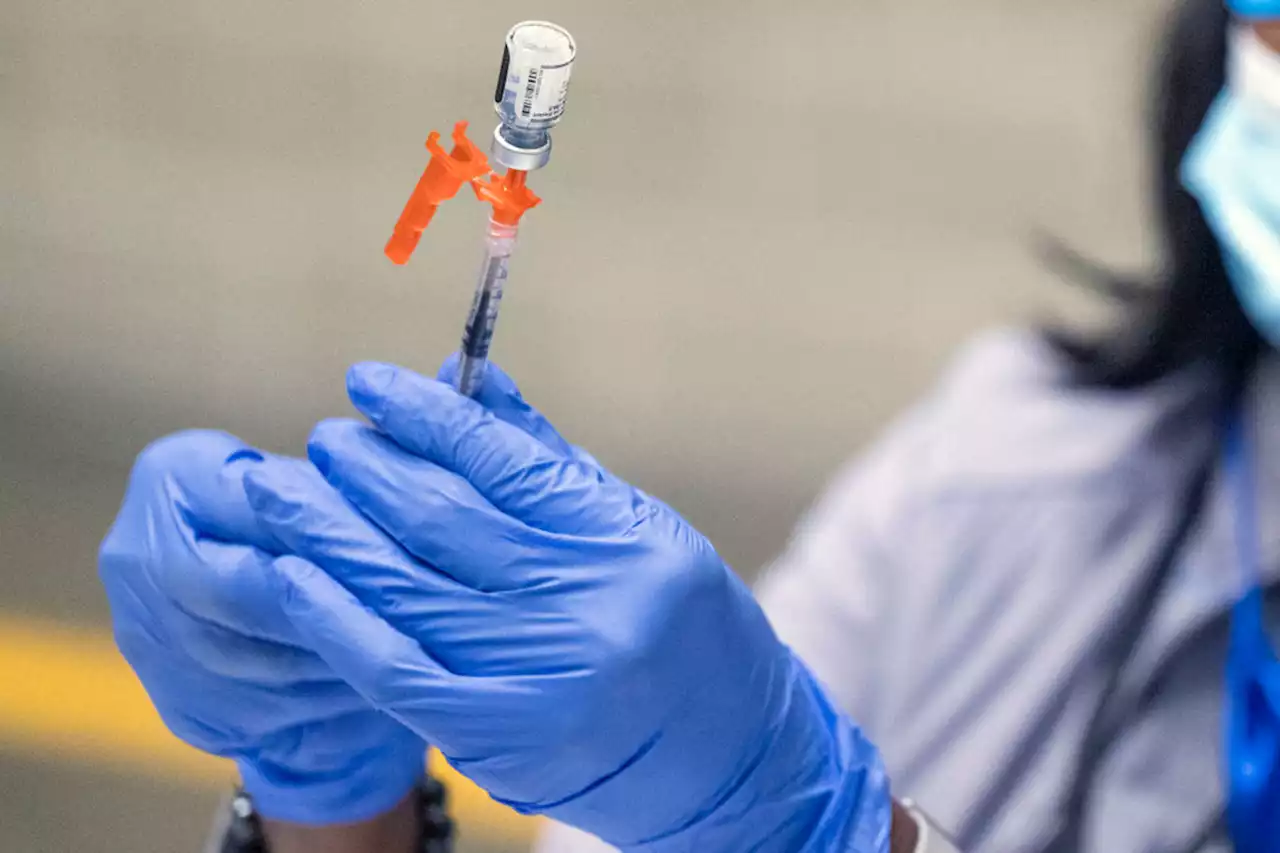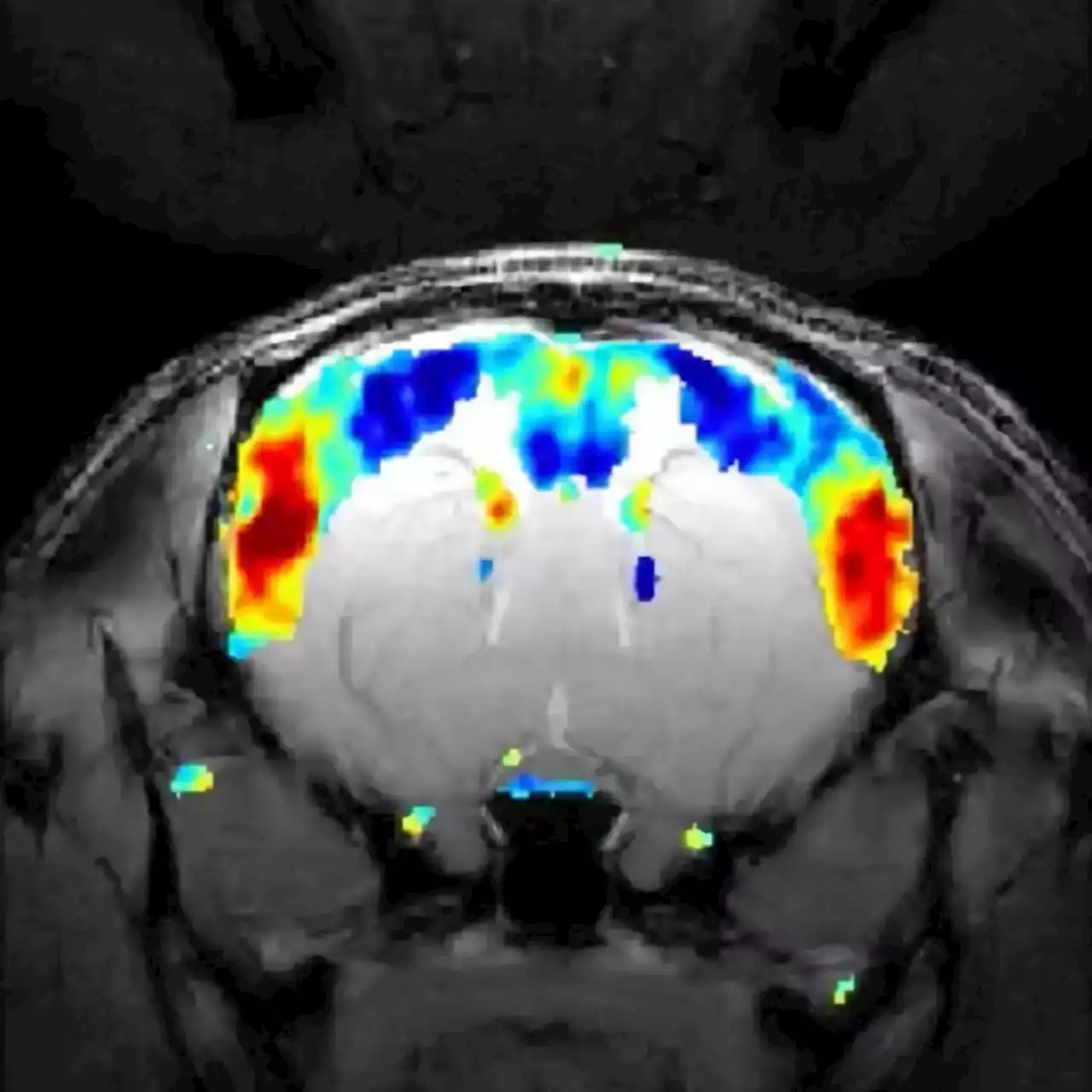It’s been over 20 years since neuroimaging studies – using functional magnetic resonance imaging (fMRI), a widely-used technology to capture live videos of brain activity – have been detecting brain-wide complex patterns of correlated brain activity that appear disrupted in a wide range of neurologi
cal and psychiatric disorders. These patterns form spontaneously, even at rest when no particular task is being performed, and have been detected not only in humans but also across mammals, including monkeys and rodents.
The video shows that brain activity captured with fMRI can be reconstructed as the superposition of a small number of macroscopic stationary waves, or resonant modes, oscillating in time. Credit: Joana Cabral The new study thus strongly points to a key role for these resonant waves, or modes, in brain function. These resonant phenomena, the authors believe, are at the root of the coherent, coordinated brain activity that is needed for normal brain function as a whole.The researchers detected the resonant modes in rats in the resting state, which means the animals were not subjected to any specific external stimulus.
The researchers experimented with rats in three different conditions: sedated, lightly anesthetized, and deeply anesthetized. “The spatial configuration of these stationary waves was very consistent across rats scanned in the same condition,” Cabral points out. “Our study also provides a new ‘lead’ in looking at disease,” corroborates Shemesh. “We know that long-range brain activity is strongly impacted in disease, but we do not understand why or how. Understanding the mechanism of long-range interactions could lead to a completely new way of characterizing disease and hinting on the type of treatment that may be necessary: for example, if a specific resonant mode was missing from a patient, we might want to find ways to stimulate that particular mode.
México Últimas Noticias, México Titulares
Similar News:También puedes leer noticias similares a ésta que hemos recopilado de otras fuentes de noticias.
 Working on a Task With Another Person Changes Your Brain Activity, Study FindsSomething strange and rather wonderful happens when two people are working together on the same task, a new study shows: key regions of their brains sync up, suggesting we can match each other's neural activity when we're in groups.
Working on a Task With Another Person Changes Your Brain Activity, Study FindsSomething strange and rather wonderful happens when two people are working together on the same task, a new study shows: key regions of their brains sync up, suggesting we can match each other's neural activity when we're in groups.
Leer más »
 This cheaper dental treatment for kids works well, study findsOver half of children ages 6 to 8 — and nearly 60 percent of U.S. adolescents — have cavities, according to the Centers for Disease Control and Prevention.
This cheaper dental treatment for kids works well, study findsOver half of children ages 6 to 8 — and nearly 60 percent of U.S. adolescents — have cavities, according to the Centers for Disease Control and Prevention.
Leer más »
 Drinking This Many Cups of Coffee Daily May Harm Kidneys, New Study FindsDrinking 3 Or More Cups of Coffee a Day May Increase Kidney Dysfunction Risk, Study Finds
Drinking This Many Cups of Coffee Daily May Harm Kidneys, New Study FindsDrinking 3 Or More Cups of Coffee a Day May Increase Kidney Dysfunction Risk, Study Finds
Leer más »
 Prior COVID infection provides just as much protection as vaccines, new study findsA new study found that previous COVID-19 infection offers at least the same level of protection as two doses of vaccines, lasting for 40 weeks or longer.
Prior COVID infection provides just as much protection as vaccines, new study findsA new study found that previous COVID-19 infection offers at least the same level of protection as two doses of vaccines, lasting for 40 weeks or longer.
Leer más »
 COVID infection provides as much protection as vaccine, study finds“This is the reason that I don’t generally recommend the vaccine booster for at least a few months following infection,” Dr. Siegel said.
COVID infection provides as much protection as vaccine, study finds“This is the reason that I don’t generally recommend the vaccine booster for at least a few months following infection,” Dr. Siegel said.
Leer más »
 Spinal cord stimulation can improve arm and hand motion after a stroke, study findsA study published in the medical journal Nature on Monday found that targeted electrical pulses delivered to the spinal cord can help improve arm and hand movement after a stroke.
Spinal cord stimulation can improve arm and hand motion after a stroke, study findsA study published in the medical journal Nature on Monday found that targeted electrical pulses delivered to the spinal cord can help improve arm and hand movement after a stroke.
Leer más »
